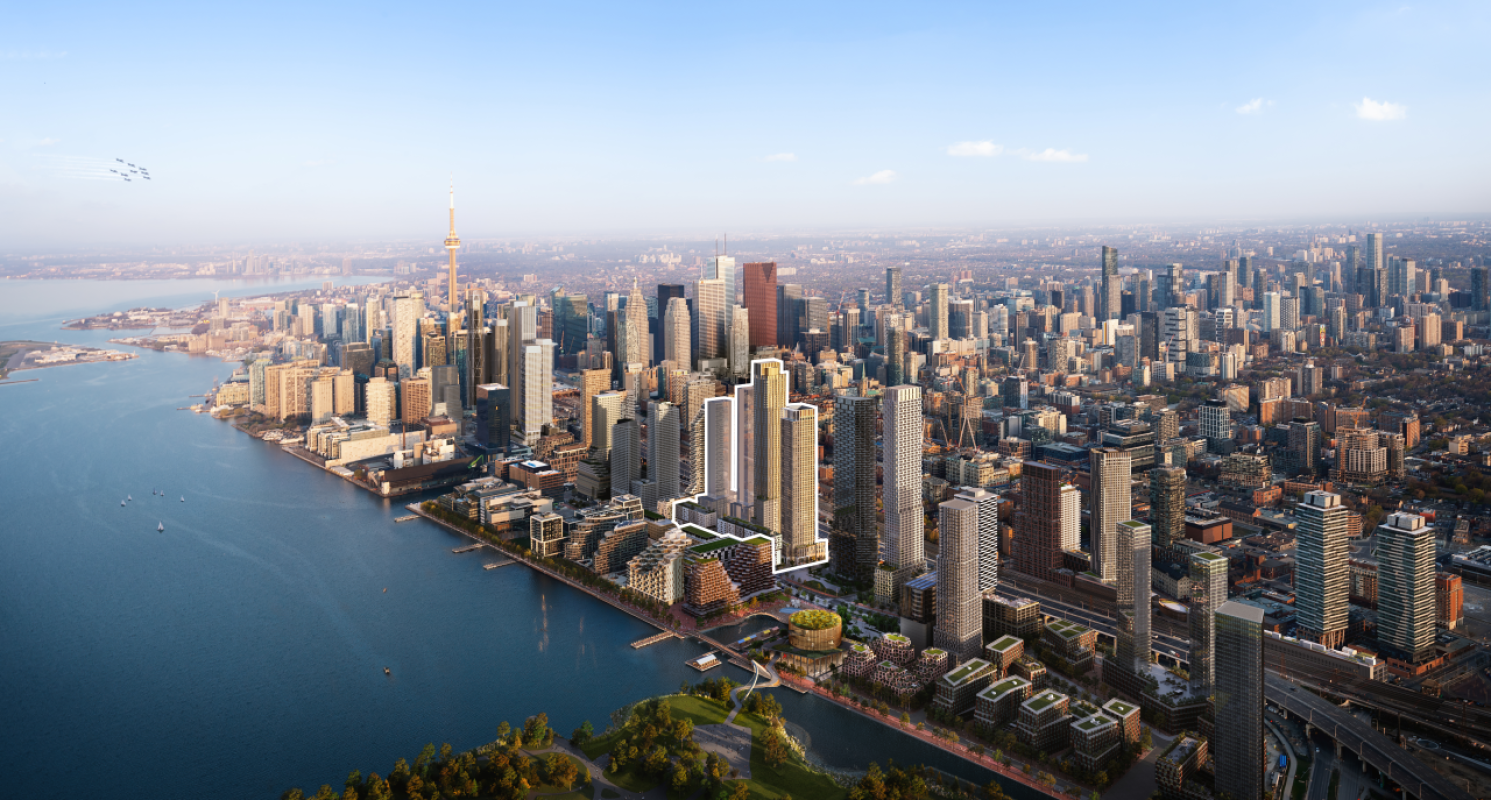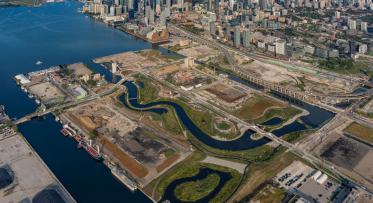What’s Next for One of Toronto’s Most Significant Housing Projects
PUBLISHED: September 24, 2025
In This Blog:
- Quayside is moving forward to deliver more affordable homes, faster
- Community, design excellence and sustainability are the foundation of this revitalization – addressing a critical need for housing, and building a complete neighbourhood with a Community Hub, Community Forest and rooftop urban gardening on the waterfront
- The next step is to continue advancing the designs for the public spaces and buildings through the City of Toronto’s site plan approval process – and to continue engaging the public as designs evolve
Quayside is one of the most significant housing projects in Toronto, and it’s set to break ground next year.
Quayside is more than a development; it’s part of a long-term revitalization of Toronto’s waterfront. And, as with all Waterfront Toronto projects, it has ambitious goals relating to affordability, design excellence, sustainability and community.
Toronto, like other cities across the country, is experiencing a historic housing and affordability crisis. At a time when housing is urgently needed, market conditions have changed, and the construction of new housing has stalled.
Given this, how are we moving forward to deliver on our goals? Through strong collaboration and with the collective commitment of the City of Toronto and our development partners – we’ve made changes to the housing plan to keep the first phase of development at Quayside on track.
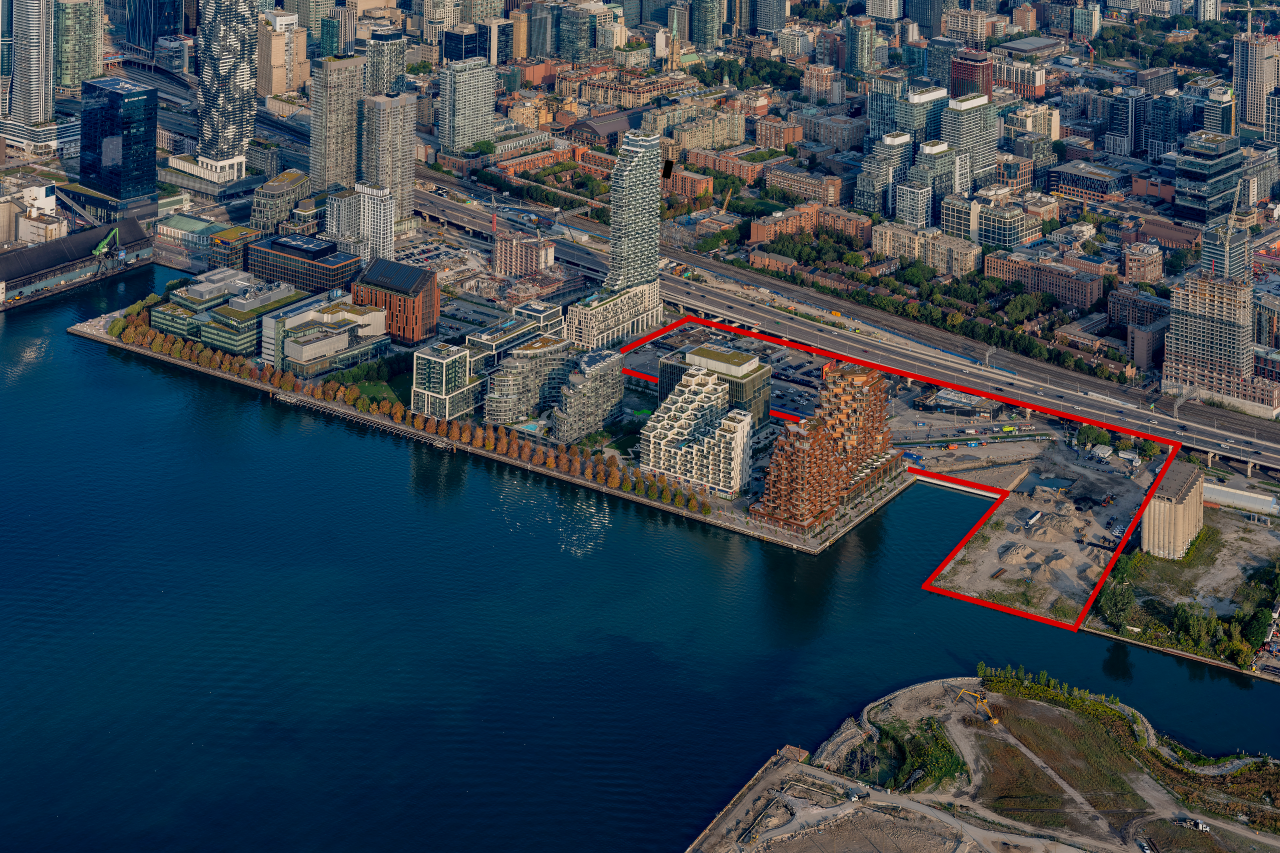
Quayside, outlined in red, will be vibrant hub, linking nearby neighbourhoods like Bayside, St. Lawrence, the Distillery District and Toronto’s new island, Ookwemin Minising.
Our Plan for Housing
At a time when housing projects across the city have stalled, Quayside is moving forward to deliver more affordable housing, faster. In Phase 1, we are accelerating the delivery of approximately 550 affordable rental homes, building about 100 more homes in the first phase of development than originally proposed. This includes an impressive number of family-sized units – about 57% of the affordable homes will be 2, 3 and 4 bedrooms. And, we are introducing over 1,100 purpose-built rental homes, replacing a significant portion of previously planned market condominiums.
The rental properties will all be advanced at the same time. Construction is expected to get underway in 2026 with the goal of welcoming the first new residents in 2031.
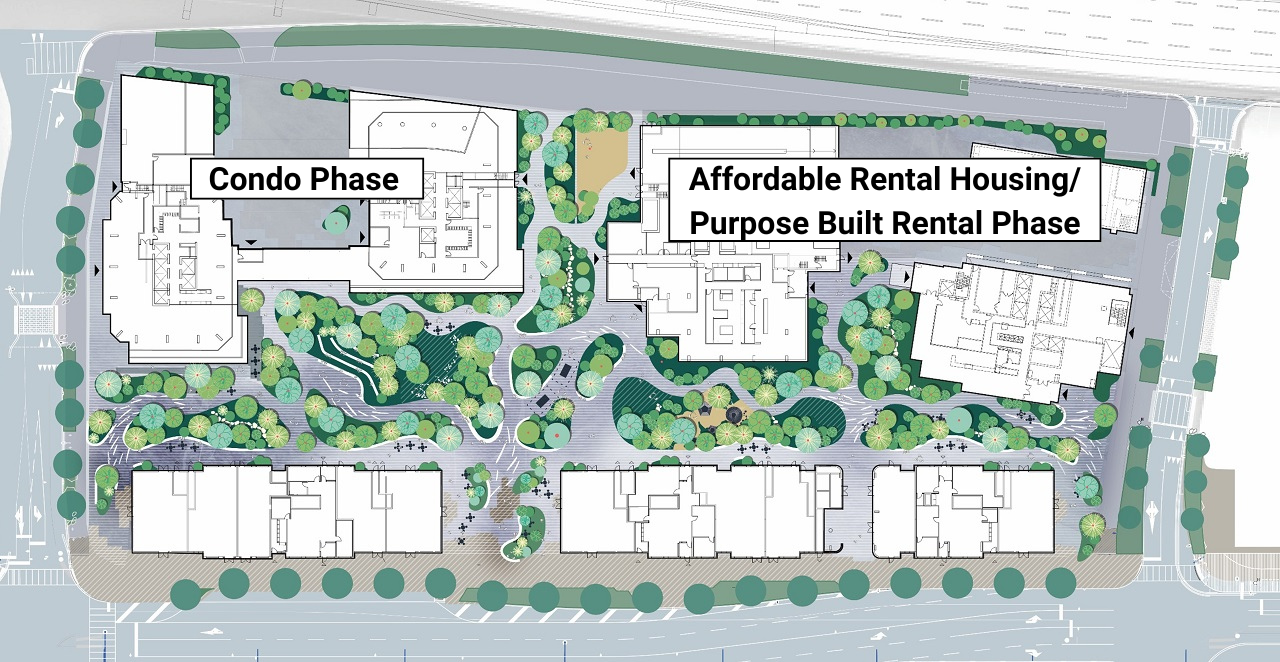
The rental homes – about 550 affordable and about 1,100 purpose-built market rental homes – will all be advanced at the same time.
The condominium portion of Phase 1 (at Bonnycastle and Lake Shore) was originally proposed as a single 67-storey building with about 1,100 units. The current market conditions can’t support this many units coming onto the market all at once. The solution is to phase development on this block by breaking it up into two separate buildings, each with a smaller number of units. This means Toronto City Council will be asked to approve new zoning for this block. Alison Brooks Architects remains the lead architect for this block and sees this as an opportunity to create an even stronger design than the initial single-tower concept.
We’ll move forward with community, design excellence and sustainability at the foundation of this revitalization.
1. Community
Quayside will be the inclusive and livable complete community we set out to achieve.
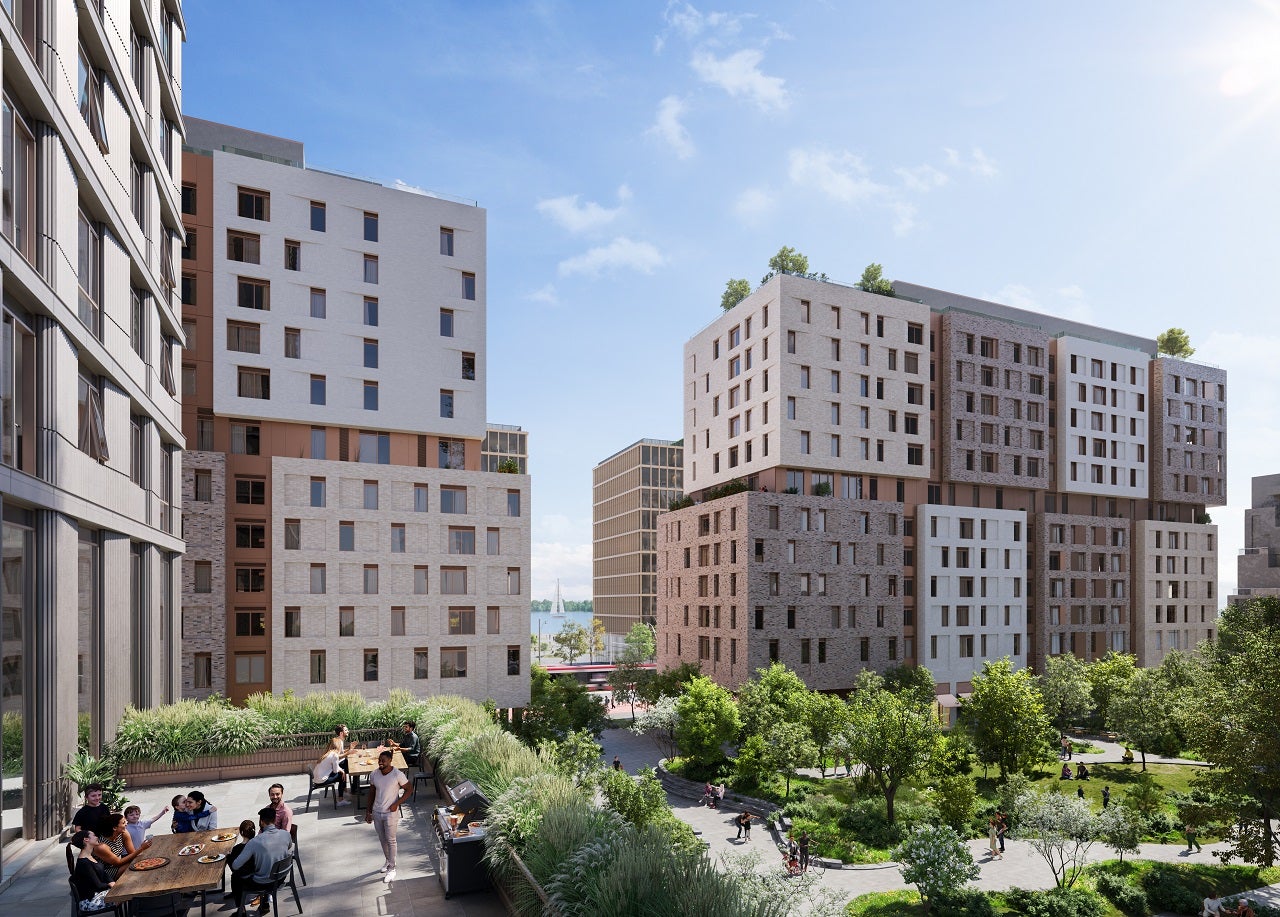
Resident amenity space overlooking the Community Forest with a view to the lake between two buildings designed by Teeple Architects.
The Community Forest remains the green heart of Quayside – and will be among the largest and greenest privately-owned public spaces in the city. Offering respite from busy city life, this active space will have lots to offer residents and visitors alike.
Phase 1 also includes the planned Community Hub and a new childcare centre. The gathering space and health and wellness services hosted here will help neighbours connect and create a true sense of community. And, a rooftop urban garden, although more modest in scale than originally envisioned, will create opportunities for farm-to-table partnerships, agricultural education and special events.
2. Design Excellence
Quayside is being designed by a strong roster of architects, including Alison Brooks, Henning Larsen and SLA with Two Row Architect guiding the Indigenous design from the original team, and now includes Allies and Morrison and Teeple Architects.
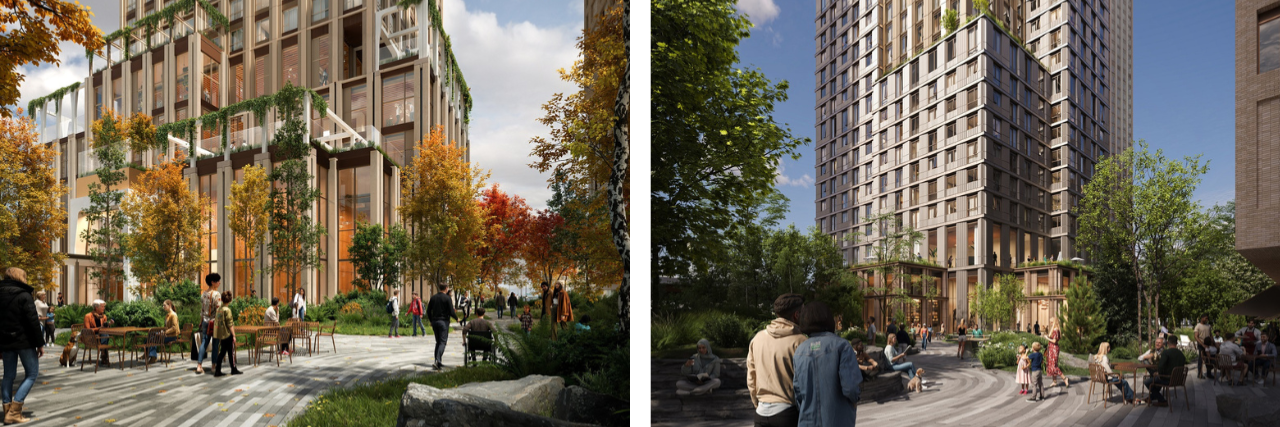
The building on the left, designed by Allies and Morrison, comprises all purpose-built rental homes and the Community Hub and childcare centre. The building on the right, designed by Henning Larsen, includes both affordable and purpose-built rental homes.
The Community Forest, a beautiful statement of landscape architecture by SLA, will span from Bonnycastle to Small Street forming a vibrant network of spaces where neighbours can gather and friends can play. The community will come to life as an ensemble piece where every building and every feature plays a role in creating a distinctive water’s edge community.
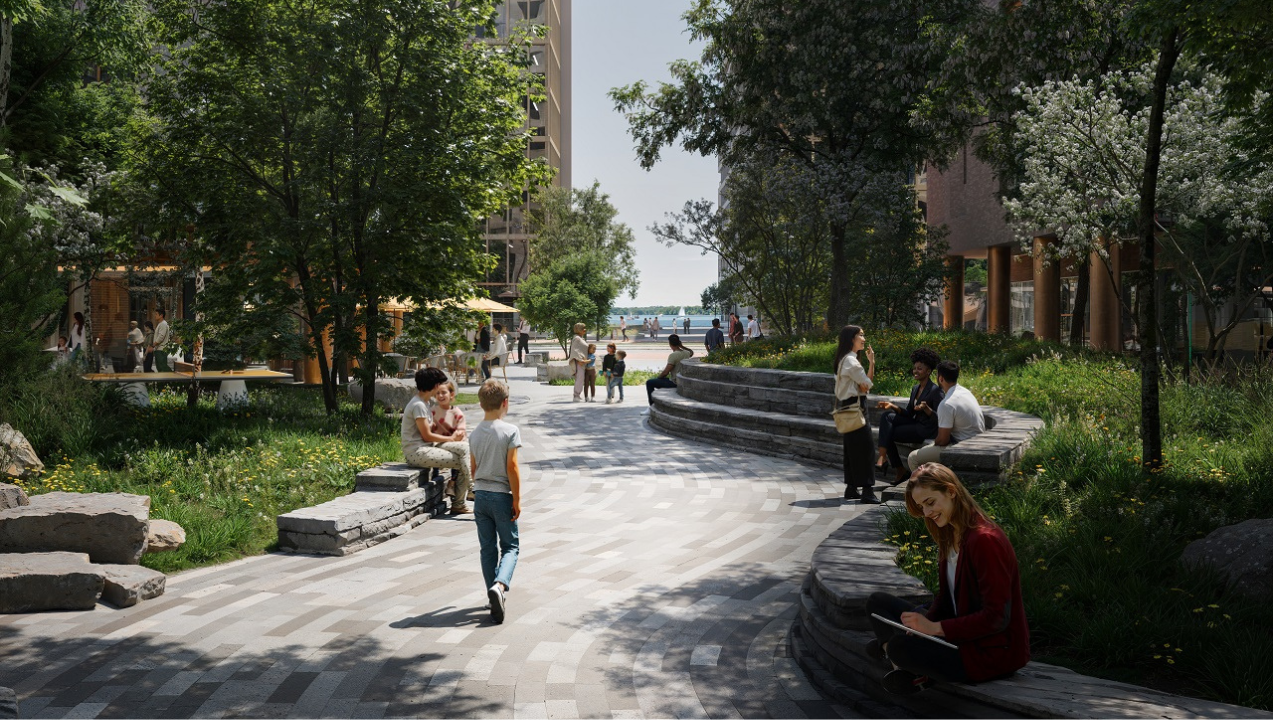
Walking south through the Community Forest with a view towards the lake.
3. Sustainability
Waterfront Toronto continues to push towards a more sustainable future. We do this by requiring our development partners to meet high but attainable sustainability standards and by establishing the outcomes waterfront developments must achieve — without dictating how. In this case, Quayside will be a zero-fossil fuel, zero-carbon certified master-planned community featuring a variety of sustainability innovations, like carbon-free heating and cooling systems and low-carbon building materials.

The rooftop urban garden creates opportunities for farm-to-table partnerships, agricultural education and special events.
Initially the plans for Quayside proposed mass timber for a series of mid-rise buildings of varying sizes that would include both market condominium and affordable rental homes. Given our collective priority to delivery housing, we are taking advantage of the opportunity to deliver more units as efficiently as possible. These buildings have been reimagined to include 100% affordable housing. And, by modifying the design and the approach to construction for these buildings we can deliver more affordable homes, faster, including a significant number of family sized homes.
Based on feedback we heard from non-profit housing providers, we targeted designing three equally-sized buildings – three 12-storey buildings each with about 114-145 units – which wasn’t possible to accomplish with the original design vision. Our goal is to ensure the efficient delivery of housing, and proven techniques offer greater certainty. Although timber is no longer part of this plan it will not diminish the sustainability goals for the overall community.
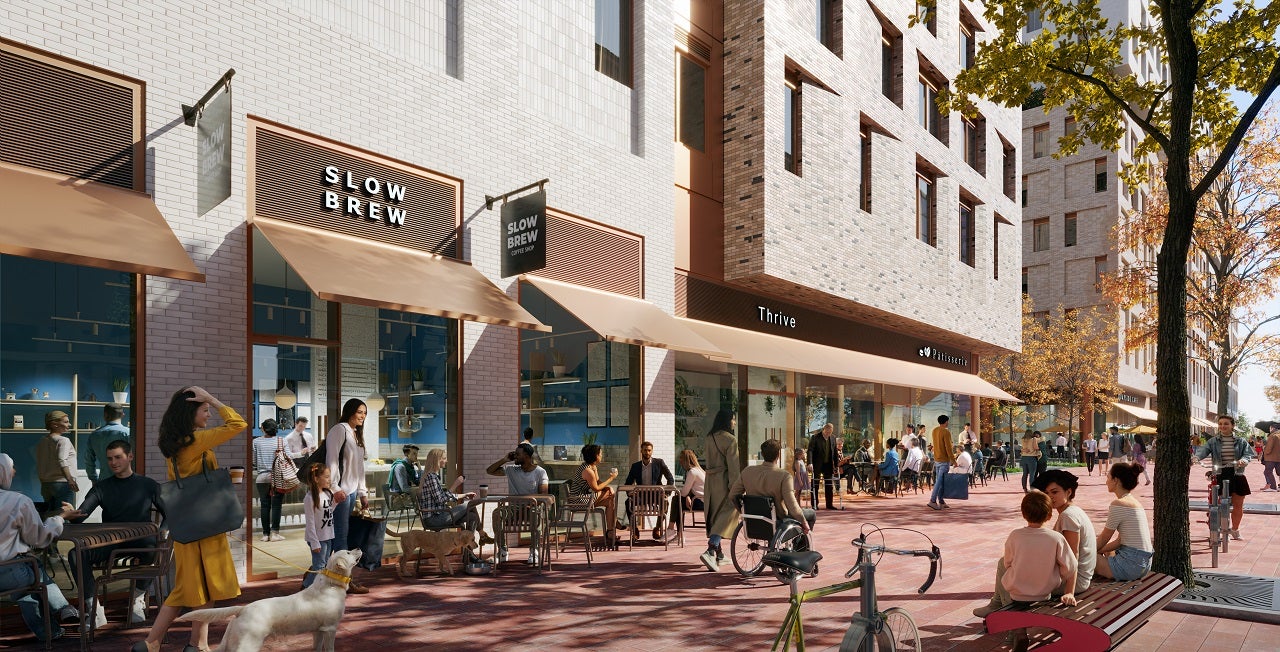
The ground floor retail along Queens Quay will also flow into the Community Forest.
Next steps
The next step is to continue advancing the designs for the public spaces and buildings through the City of Toronto’s site plan approval process and to pursue the zoning by-law amendment for the market condominium site. Planning applications for phase two of the development will be advanced separately. Public engagement will continue to inform how Quayside evolves as designs advance and this new community comes to life.
Stay up to date on planning and engagement activities by signing up for our newsletter or following us on social.

